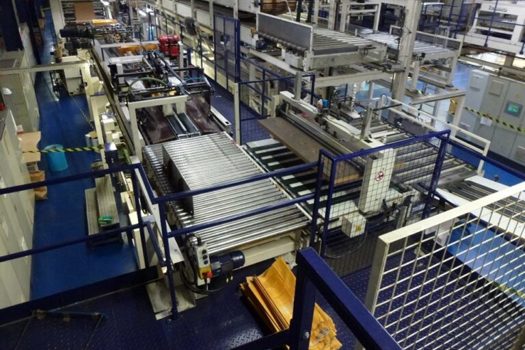Overall group sales, including overseas parcels business GLS, were up 16.6% to £12.64bn in the 52 weeks to 28 March.
Adjusted operating profit more than doubled, jumping from £325m to £702m, while net debt of £46m in the prior year transformed to a net cash position of £622m.
However, Royal Mail pointed out that parcel volumes slipped slightly in April, and said that “significant uncertainties with respect to public health and economic growth cloud the outlook for the year ahead”.
Regarding letters, Royal Mail said the impact of Covid-19 had resulted in “a significant reduction in letter volumes”, although the rate of decline had slowed by Q4.
Business mail was described as “more resilient throughout the year”.
“Advertising Mail saw volume reductions of almost two thirds during the first quarter of the year, recovering to a 23% decline in the fourth quarter. The Consumer and SME channels also saw volumes improve over the course of the year. Total letter revenue declined by 12.5% year on year,” Royal Mail stated.
The period has involved a number of major changes at the group, including the appointment of a new CEO, a massive management restructure involving culling 2,000 roles, the introduction of new services such as parcel collection and Sunday deliveries, and a new landmark agreement with the Communication Workers Union after years of friction.
Royal Mail also struggled to handle the sheer volume of parcels at peak periods.
Last year the group had flagged that it expected to be loss-making in this financial year, but its fortunes have seen a huge turnaround despite substantial costs of some £87m involved with adapting to Covid-secure operations.
At the Royal Mail business in the UK this involved a £40m spend including 21.6m face masks, 47.1m pairs of gloves, 3.7m packets of wipes and 3.6m bottles of hand sanitiser.
Non-executive chairman Keith Williams said the business expected the Covid-19 crisis will have “accelerated the long-term structural shifts in both parcel volume growth and letter volume decline”.
“On parcels, the changes experienced in 2020-21 were extreme. A proportion of the growth will start to unwind as the lockdown restrictions are removed, although it also seems certain that a significant proportion will stick, as consumer behaviour and buying preferences switch online permanently,” he said.
“On letters, whilst it is unlikely that business mail customers who have found an electronic alternative to mail during the pandemic will switch back to mail, we believe that advertising mail has an intrinsic value as a part of the marketing mix, so we could see a more positive recovery in that stream over time.”
Williams also stated: “The unwind from the impacts of the pandemic is likely to be just as volatile as when we entered it, is similarly difficult to forecast, and it may be some time before we know the true impact of the pandemic on the topline.”
Royal Mail chief executive Simon Thompson, who took over in January, said the business was emerging stronger and leaner, and had learned that it could “change at lightning pace when we are united by a common purpose”.
We’re changing. And it’s working,” he stated.
“Our people have been magnificent. On behalf of our customers and Royal Mail I would like to thank them for their Herculean effort and for everything they have done.”
He also thanked customers for their support and tolerance of service disruption when “at times our quality has not always been as we would have wished”.
“We know the world has changed and the team is now focused on delivering pre-Covid-19 quality in a Covid-19 world as soon as we can.”
Regarding Royal Mail’s Universal Service Obligation (USO), which the group believes needs “rebalancing”, Williams said: “Given the significant changes we continue to see in the market – more parcels, fewer letters – we continue to believe the best way to ensure that the Universal Service continues to meet customers' needs is to rebalance our UK business model more towards parcels.
“We remain absolutely committed to the universal affordable, 'one price goes anywhere' nature of the Universal Service. But as customers change, so must we. This year, Royal Mail will simplify and improve its product offerings under a 'good', 'better', 'best' approach. As we develop this further we will engage with Government and Ofcom about the regulatory changes needed to allow us to adapt quickly to offer what customers want, and to ensure the Universal Service regains relevance and is sustainable.”
Royal Mail is also piloting unique barcodes on stamps, and will reveal more about how this will facilitate new customer services later this year.
Separately, it is consulting on proposals to withdraw its Responsible / Sustainable Mail option next year as part of a simplification of services.
Royal Mail’s share price slipped by 5.2p to 519.80p on the news (52-week high: 540.38, low: 151.33).










